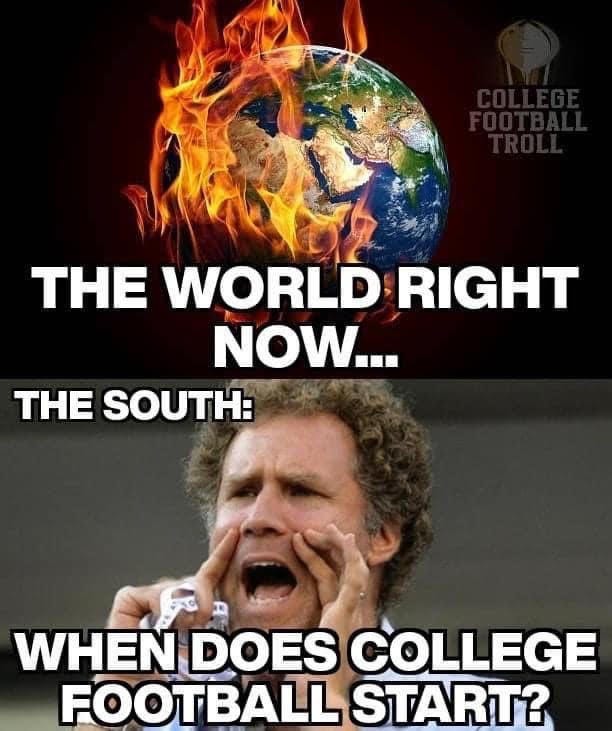Today, my late father would make six figures in the NIL market
Jack, my 8-year-old, saw his grandfather playing in a big game from 1960 … and wants to be like him!

*** Author’s note: A little change of pace today … ***
Last night, my 8-year-old son, Jack, and I were playing catch in the den. Jack was sometimes throwing the little rubber ball too hard given that we were only about 8 feet apart. I said, “Jack you’ve got to learn how to throw the ball easy when you are close to the person you are throwing the ball to.”
This prompted me to go to YouTube and show Jack some footage of Major League baseball players, turning jaw-dropping double plays. My coaching point was: “See how these infielders flip the ball softly to the second baseman or shortstop.”
Jack enjoyed this highlight reel, which made me search for similar highlight footage of NFL receivers making spectacular catches.
Jack also enjoyed this football clip and wanted to go right back to the den and dive onto the couch as he attempted to emulate these amazing athletes.
This comment hit me in the heart …
Jack then said, “Maybe I can be a great football player like your Dad was.”
My late father, Bill Rice, Sr., was indeed a very good college player (for Alabama) and later got drafted by the Houston Oilers.
Sadly, my father died before Jack was born (I was 49 when Jack was born).
After Jack and I played catch a few more minutes, I decided to see if I could find some old footage of my late father playing for the Crimson Tide. I remember my younger brother once told me he’d found some footage on the Internet that includes highlights from the 1960 BlueBonnet Bowl between Alabama and Texas.
Sure enough, I found the highlight reel and promptly showed it to Jack, who responded with awe and pride.
(Here’s the clip. My late father is No. 85 in the white for Bama. This is a fortuitous clip to show Dad’s grandson as, on back-to-back plays (see around 40 seconds), it shows my dad - the left tight end on offense - firing off and making a powerful block and, then, making a catch and run for 49 yards, almost scoring.)
I was never a great football player, but I told Jack, “It’s in our bloodlines. Maybe one day you can play for Bama like your grandfather did.”
It’s too soon to tell if Jack will grow up to be a stand-out football player, but I can tell he’s now passionate about playing the sport … and anything that generates intense interest - and involves being a part of a team - is probably going to end up being a worthwhile experience.
Dad never felt like he was “exploited” …
This morning my Substack author buddy Mark Oshinskie sent me a link to a story that reports that previous college athletes will - for unclear reasons - receive “$2.7 billion in back compensation” from a lawsuit settlement involving the NCAA and the big sports conferences.
Mark asked several excellent questions about this lawsuit. For example:
“What does this mean for Title 9 women's scholarships? …We had bigger crowds at HS JV games than (some of these minor) sports have.”
“Do the conferences share money equally?
“Wasn't NIL supposed to address this exploitation?”
“How does these neo-salaries influence ticket/TV subscription prices and overall public enthusiasm for college athletes?
“What would guys like your father, who built football and basketball's popularity, say about all this?”
My initial two cents …
My guess is the genesis of this class-action lawsuit includes the predicate that previous student athletes were “exploited” and, thus, deserve compensation.
Albeit expressing a widely-held view, I’ve always thought this line of thought was a crock.
Nobody made athletes of earlier eras play sports they, presumably, loved playing. If these athletes thought they were being exploited, there was an easy solution: Quit playing - become a full-time, non-athlete student or … go get a job where you could get paid.
I don’t know if I can think of any ultra-talented athletes who turned down college scholarships. All the D-I football and basketball players I’ve known were treated like rock stars on campus.
I know the answer to Mark’s question about my late father, who was a three-year starter for the legendary Paul “Bear” Bryant and played on a national championship team.
Dad would have definitely done it all over again (although he told me many times he detested and dreaded practices and the grueling off-season workouts.)
However, my father received a full-ride to the University of Alabama and earned a degree in Commerce.
He also was in the ROTC program and was later a commissioned officer in the Army for two years - where he played on Ft. Benning’s football team for two years
Dad later retired from the National Guard as a a Lt. Colonel and received several years of a pretty-sizable retirement pension.
Also, Dad hurt his knee playing football for this military base and, for 48 years, received a monthly “disability” payment for this service-related injury. (This started off as $12/month in 1964, but had grown to, I think, $140 by the time he passed away.)
It just occurred to me that Dad probably wouldn’t have become a commissioned officer in the U.S. Army and Alabama National Guard if he hadn’t first gone to college and went through the ROTC program.
Dad was also semi-famous because he played football on a high-profile team. I’m sure this opened many business and social doors for him for the balance of his life.
The fact my Dad had once been a pretty good college football player at Alabama has probably generated benefits for me and “opened doors” for me. Speaking for myself, I’m glad Dad didn’t quit the team and endured being “exploited” for four years.
Bama football, eventually, got my Dad …
My father died of a heart attack at age 70. He suffered the heart attack after Alabama eked out a comeback win over South Carolina in a game in 2010.
For someone who was exploited for four years, Dad, for some reason, possessed a deep love and interest in the school and program that had exploited him.
(Trust me. You did not want to watch an Alabama game on TV around my late father. He played just as hard on the couch, watching TV, as he had on the playing surfaces of all the SEC stadiums. In the end, Alabama football might have killed my father, which is ironic because Dad said he felt like he was going to die in countless football practices in the early 1960s.)
Skip forward many decades and Dad would have no doubt been a hot commodity on the open NIL market.
Today, every big school is robbing the best players from other teams by making these players “offers they can’t refuse.”
Many of the best college players are now earning six figures playing college football. A few quarterbacks might be earning seven figures.
In contrast, my father simply played for a free education, the air-conditioned athletic dorm, three great meals a day, the pageantry and excitement of big games, unforgettable bowl trips, and life-long memories he’d formed with his band of brothers.
I agree with Mark …
Mark Oshinkie, who practiced law for decades, told he hadn’t read the lawsuit complaints so, like me, he isn’t sure of the tort these former athletes allegedly suffered. Mark did share this opinion:
“It seems that past players made their bargains with their colleges and shouldn't be entitled to revisit/revise the agreements they made.”
The argument seems to be that these (once) amateur players were robbed of hundreds of thousands of dollars they were entitled to.
Not mentioned, though, is the price tag one could place on the irreplaceable experiences and memories these student-athletes derived from their four years of exploitation.
If someone took a poll of most former student athletes - whether they played big-time college football or were a reserve on the volleyball team … and these former athletes were completely honest … I think the vast majority would admit they’d do it all over again … for free.
As usual, the “reform” pushed by the woke experts and “leaders” will probably do far more harm than good to student athletes and turn off many fans who actually enjoyed these sports just the way they were for 100 years.
See, it’s not “All Covid all the time.” If I was a baseball pitcher, this piece would be a change-up.




Another point that's worth mentioning comes from me being a fan our our home-town college teams at Troy University. Troy doesn't have the rich boosters or big TV contracts to pay its players even medium-sized NIL stipends. Because of this, just about every good or proven player on Troy's team will be recruited to go play for the rich and "blue blood" programs. As they will be paid large sums of money to do this, most probably will transfer.
Also, because of scheduling changes, programs like Troy won't get as many opportunities to play prominent programs in the regular season. These games - against programs like LSU and Nebraska - not only give Troy's athletic Department a million-dollar payday, they provide an opportunity for Troy to make a splash on the national stage if they upset some of these teams - which Troy has done several times.
I think all these seismic changes in college sports are going to harm these so-called "Mid-Major" programs. Some will probably quit offering D-I sports.
The rich will get richer; the poor programs will probably become poorer.
I've researched this, only about 5 percent of the D-I, football-playing programs make a profit from their sports programs. The rest bleed money, and require massive tax-payer subsidies to fund these programs. All of the I-AA, Division II and Division III programs lose a ton of money.
Now, athletic departments are having to spend millions (?) of dollars on NIL payments to their best football and basketball players (and, probably, the ace pitchers on the girls softball teams).
That money comes from avid boosters, who used to write checks to fund a stadium expansion or a fancy new weight room or athletic complex. One of my questions is where is the facility and scholarship money going to come from now? As noted in this piece, my prediction: The "reformers" will kill the golden goose that made college sports so popular and turn-off many long-time fans.